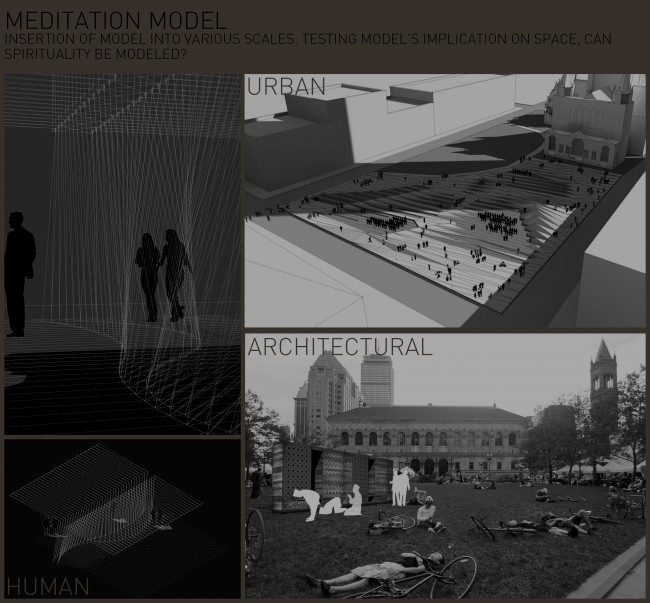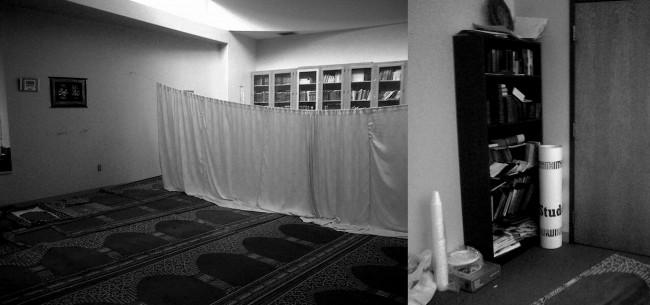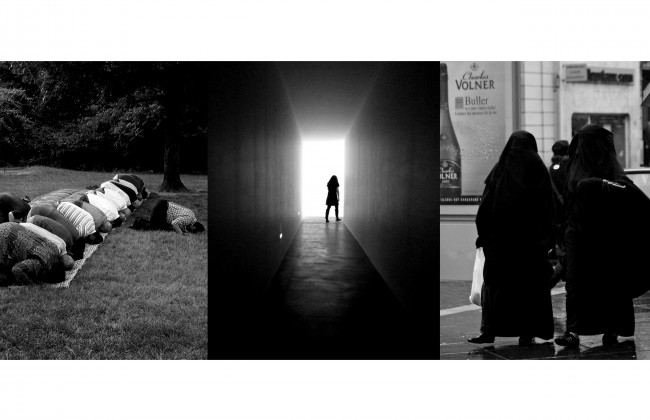The mosque typologies as they exists today have failed to properly address the unique contextual challenges and opportunities of the American context. The mosques of America have largely neglected the communities in which they have been inserted into, but instead have trended to alienate themselves and its patrons. The predominant American (non-Muslim) perception of mosques are dark, distant, unapproachable and impermeable structures. While most Americans would view that mosques threaten and disrupt American social order, this thesis will attempt to demonstrate how a mosque which has been sensitively designed for its context will help reinforce and strengthen American social order and the notion of community.
Additionally, the thesis will critique the external as well as internal workings of existing American mosque models. There exists major internal shortcomings mosques in the way they have addressed the needs of its patrons, with a failure to establish a mosque model that is well suited for growth. An exploration will be made that focuses on developing new prototypes that deal specifically with mosque design in varying scenarios within the American context by amplifying its presence, rather than attempting to obscure/conceal/camouflage it. More specifically, the city of Boston has been selected as a testing ground in order demonstrate the prototypes potentiality of retrofitting into the notion of an American city. Spanning from the human to the urban scale, a series of projects will attempt to address issues of interface and retrofit into an American framework. A new public visibility is crucial as Islam continues to grow, dispelling social stigma and bridging strong interfaith communities.
At the human scale, the prototypes will try to troubleshoot common shortcomings of the uniquely american ‘retrofit’ typology (adapted mosque spaces from previous retail/commercial/residential space) such as disorganization, clutter and the resulting diminishment of the mosque experience. The thesis makes a claim that these shortcomings, though they are seemingly trivial, have a tremendous impact on the essence and spiritual quality of the prayer.
At the urban scale, the project will explore a new juxtaposition of the Islamic prayer and a vibrant urban plaza. The hope is to demonstrate a new potential for the prayer to interface with its urban context, putting the inner-workings of the mosque on display, Using the previous two projects as a method for testing ideas and collecting data, the project at the building scale will be an attempt to consolidate both the inner and outer workings of a properly functioning ‘American’ mosque. The main goal of the building scale is to find an architectural expression which is ‘ Islamic’ but also uniquely american, giving the Islamic community in Boston a unique self-identity which is harmonious and compatible with the communities around it.
October 11th, 2012
by ali | Posted in Uncategorized | No Comments » |
0 Comments »
No comments yet.
RSS feed for comments on this post. TrackBack URI


